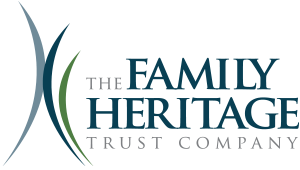
We all know early retirement planning might not be the most exciting thing in the world, but it’s an important part of securing your future. That’s why the Family Heritage Trust Company is here to guide you through all of the ins and outs of preparing for retirement. We hope you’ll use our guide to give yourself a comfortable and worry-free retirement.
Understanding Retirement Planning
Of course, today’s early retirement planning doesn’t involve stashing money under your mattress and hoping for the best; it creates a roadmap for how you’ll live once you stop working. The sooner you start, the better prepared you’ll be. Imagine the peace of mind that comes from knowing you’re financially secure and will be able to spend your retirement years enjoying financial freedom and doing what you want without worrying about running out of money.
Setting Retirement Goals
You should get a head start by deciding when you’ll be ready to retire based on your based on your life expectancy, health, and family history. Next, think about how much you enjoy your job, because if you love what you’re doing, it might make more financial sense to keep on working for a few more years. Consider the kind of lifestyle you want to have once you’re retired and factor that in along with your estimated future living expenses. Also, don’t forget to take into account the cost of housing, healthcare, travel, and daily living. Finally, consider the cost of your hobbies and all of the activities you want to be able to enjoy. If all of this sounds like it might be too big of a challenge to tackle by yourself, you can relax, because you don’t have to. Instead, you can sit back and rely on our retirement planning services to make the process simple.
Retirement and Financial Planning
It’s important to take stock of where you currently are financially, calculate your net worth and make sure you understand your savings along with the value of all of your investments. Diversifying your investment portfolio and balancing risks and returns are all vital strategies for building your financial security. This will aid in the creation of a retirement budget that balances your monthly income including all of your expenses while accounting for inflation and unforeseen costs.
Retirement Accounts and Savings Options
You can maximize your contributions into retirement accounts like 401(k), IRA, and Roth IRA, taking advantage of employer matches and catch-up contributions. This can have significant benefits when it comes to building a secure financial future. Let’s take a look.
- 401(k)
-
- Benefits:
- Employer Matches: One of the biggest advantages of a 401(k) is the potential for your employer to offer matching contributions, meaning whatever you put in, they will also put in that same amount. This is essentially free money that can significantly boost your retirement savings.
- Tax Benefits: Contributions to a traditional 401(k) are made using pre-tax dollars, which lowers your taxable income for the year. This can result in immediate tax savings.
- Higher Contribution Limits: 401(k) plans typically allow for higher annual contribution limits when compared to IRAs, making it possible for you to save even more for retirement.
- Limitations:
- Limited Investment Options: Some 401(k) plans have a restricted selection of investment choices, and that may limit your ability to diversify your portfolio.
- Early Withdrawal Penalties: Withdrawing funds from a 401(k) before the age of 59 ½ usually incurs a 10% penalty in addition to income taxes.
- Benefits:
- IRA (Individual Retirement Account)
-
-
- Benefits:
- Flexibility: IRAs offer a wider range of investment options compared to most employer-sponsored 401(k) plans, and this may give you more control over how your money is invested.
- Tax Advantages: Depending on the type of IRA you choose, contributions may be tax-deductible, and the growth is tax-deferred until you withdraw it.
- Rollover Options: You can roll over funds from old employer-sponsored retirement accounts into an IRA, consolidating your savings and potentially accessing better investment options.
- Limitations:
- Income Limits: it should be noted that contributions to a traditional IRA may not be tax-deductible if your income exceeds a certain threshold.
- Early Withdrawal Penalties: Similar to 401(k) plans, withdrawing funds from an IRA before the age of 59 ½ may result in penalties.
- Benefits:
-
- Roth IRA
-
- Benefits:
- Tax-Free Withdrawals: Qualified withdrawals from a Roth IRA are tax-free, providing tax diversification in retirement.
- No Required Minimum Distributions (RMDs): Roth IRAs are not subject to RMDs during the original account holder’s lifetime, allowing for continued tax-deferred growth.
- Estate Planning Benefits: Roth IRAs can be passed on to heirs tax-free, offering potential benefits for estate planning.
- Limitations:
- Income Limits: Eligibility to contribute to a Roth IRA is subject to income limits, and contributions may phase out or be prohibited based on income level.
- Non-Deductible Contributions: Contributions to a Roth IRA aren’t tax-deductible, so there’s no immediate tax benefit for contributing.
- Benefits:
Catch-up Contributions
Catch-up contributions are an additional benefit available if you’re 50 or older, allowing you to contribute extra funds to your retirement accounts beyond the standard allowed contribution limits.
For 401(k) plans, when you’re 50 and above you can make catch-up contributions on top of the regular annual contribution limit set by the IRS. This can help if you’re making up for lost time by increasing your retirement savings in the years leading up to retirement.
If you’re 50, both traditional and Roth IRAs will allow catch-up contributions. This allows an individual to make up for lost time by accelerating their retirement savings so there won’t be any negative consequences from not having invested earlier.
Taking advantage of catch-up contributions can be a valuable strategy for many older individuals who are looking to increase the value of their retirement nest egg so they can quickly build up a more secure financial future for themselves.
Maximizing contributions into your 401(k), IRA, and Roth IRA can be a smart way for you to build up your retirement accounts so you’ll have a secure financial future. Each type of account has its own set of benefits and limitations, so it’s important to carefully consider your financial situation and goals when deciding where to place your retirement savings. If you have questions feel free to contact us about our retirement planning services.
Explore Other Saving Options
Exploring additional savings options beyond traditional retirement accounts can further strengthen your financial position. Take a look into your other savings choices and consider options like Health Savings Accounts (HSAs) and annuities to make the most of your available retirement funds. Health Savings Accounts (HSAs) offer a triple-duty tax advantage, providing a tax-deductible contribution, tax-deferred growth, and tax-free withdrawals for qualifying medical expenses. This makes HSAs a valuable tool not only for addressing healthcare costs but also serving as a supplementary retirement savings vehicle. Our retirement planning services can help simplify everything and make your future bright.
Social Security and Pensions
We’ve spent much of our lives hearing about Social Security but when you’re thinking about retirement, it’s important to understand what Social Security retirement benefits are all about. Even if you’re still too young to collect social security, be sure you understand how these benefits are calculated and when is the best time to start claiming benefits. It’s important to know that Social Security typically calculates retirement benefits for most people based on their highest 35 years of earnings, adjusted for inflation. The age at which most people become eligible to receive their full Social Security retirement benefits is around 67, depending on the year you were born. However, you can choose to start getting reduced benefits as early as age 62. Conversely, you can delay benefits until you’re 70 if you want to increase the amount you will receive in your monthly payments.
If you’re eligible for pensions as part of your retirement, you’ll need to differentiate between the different types of plans, making sure you fully understand the benefits that they offer for your retirement.
Healthcare and Insurance
Be sure to learn all about Medicare and Medicaid eligibility, coverage, costs, and supplemental insurance options. Long-term care insurance will also become important for your future healthcare needs, while life insurance and disability insurance will provide added protection.
Estate Planning
Everyone should have a will, regardless of age or wealth. Crafting one ensures that your wishes are followed, and all your loved ones are taken care of in the way you would like after you’re gone.
Here’s a breakdown of what goes into a will and the process of creating one:
Key Elements of a Will:
- Beneficiaries: These are the people or organizations you want to inherit your assets. You can specify the exact percentage of your estate to be left to each beneficiary, or you can list specific items you want them to receive.
- Executor: This is the person you appoint to oversee the administration of your estate. The executor will be responsible for collecting your assets, paying off your debts, and distributing your property according to your wishes.
- Guardian: If you have minor children, you can use your will to designate a guardian to care for them if you die before they are of age.
- Taxes and Estate Planning: It’s crucial to consider the tax implications of your will. Strategies to minimize your tax burden should be incorporated, ensuring your legacy is preserved for future generations.
Writing your will and understanding trusts and beneficiaries are all essential when planning your estate. Be aware of the tax implications and strategies for minimizing your tax burden so you’ll be able to leave behind what you’re planning in the way that you want. Planning what’s going to happen to your estate after you’re gone can be a complicated process, and it’s easy to become overwhelmed. That’s why it’s always a good idea to contact the experts and get some professional retirement and financial planning assistance.Remember, we’re here for you.
Plan for Your Retirement Today
While your retirement may be many years away, the truth is it’s never too early to start planning for it. Take the first step towards a secure future by reaching out to financial planning professionals. Seeking the help of retirement planning services like Family Heritage Trust Company today puts you on the path to a rewarding future. Remember, preparation is key, and we’re here to help you.
Are you ready to start planning for your retirement? Contact us for expert guidance and personalized assistance. Your future self will thank you. Invest in yourself today and you’ll have so much more to enjoy tomorrow.
